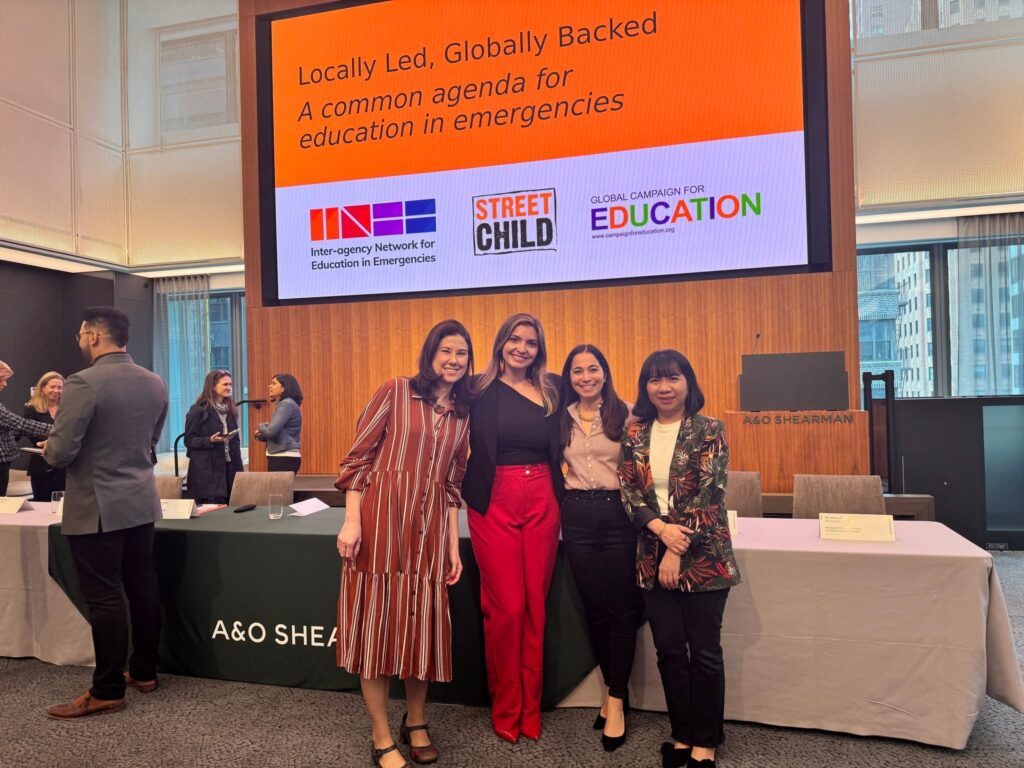UN General Assembly Side Event Spotlight: “Locally led, Globally backed: A Common Agenda for Education in Emergencies”
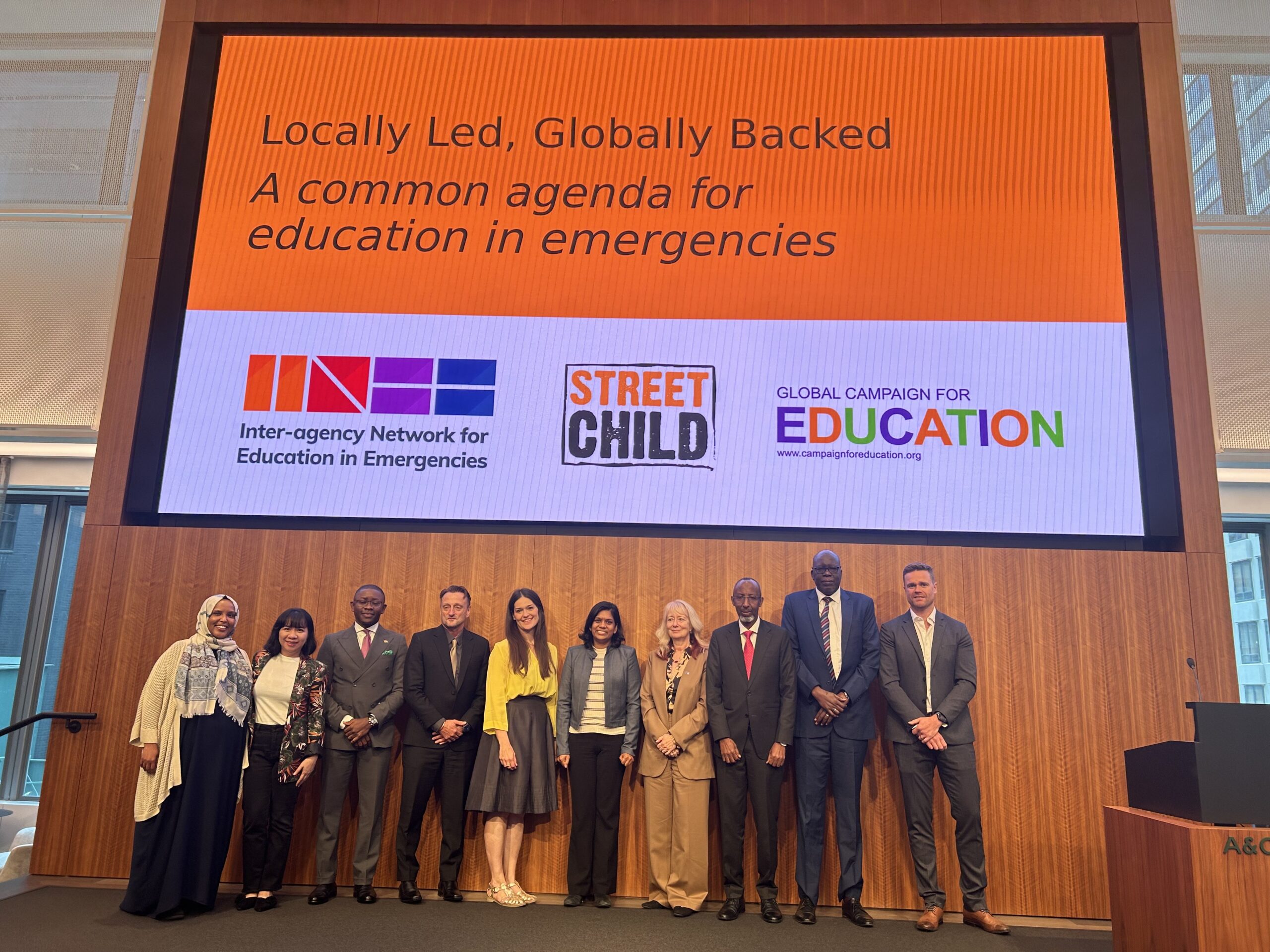
ASPBAE’s Secretary-General, Helen Dabu, joined an excellent panel of speakers in the UN General Assembly side event organised by the Global Campaign for Education (GCE), Inter-agency Network for Education in Emergencies (INEE), and Street Child on 22 September in New York City.
Inspired by the theme “Locally led, Globally backed: A Common Agenda for Education in Emergencies,” this event spotlighted the urgent need to support education in emergencies (EiE) amidst the current context. Strategic inputs and interventions emphasised the need for local leadership, meaningful localisation, and sustainable financing for the sector.
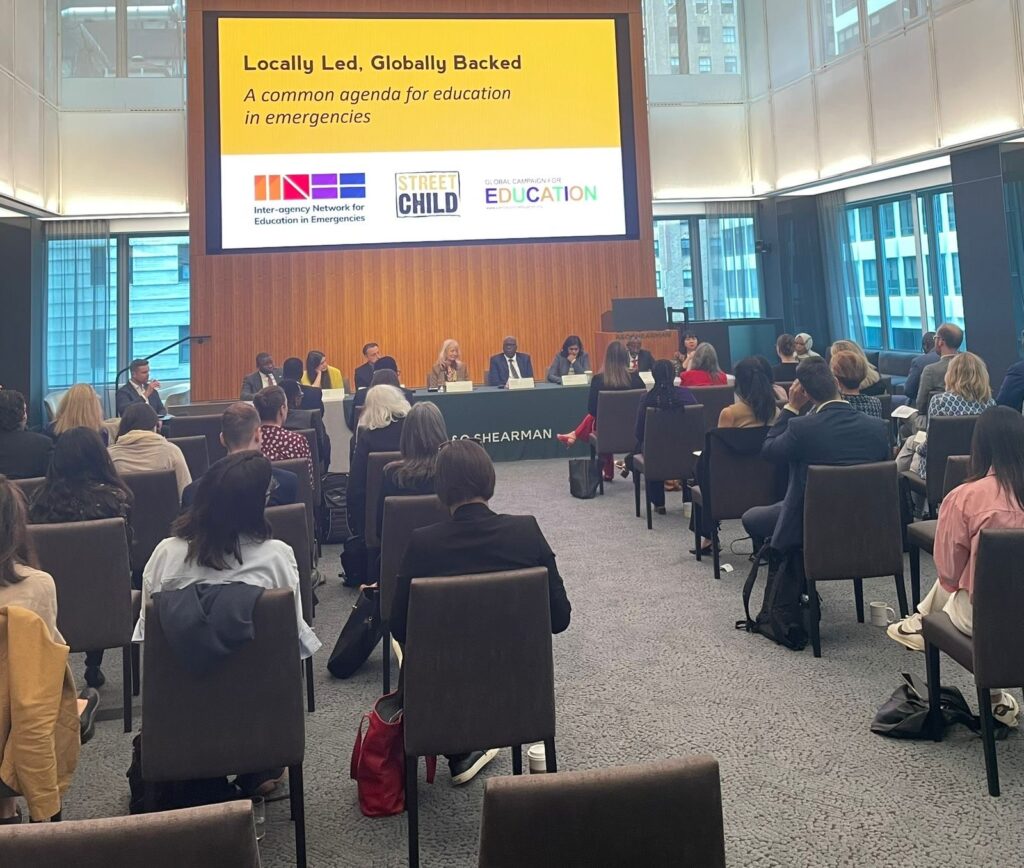
As part of the GCE Board and INEE Steering Group at the global level, Helen shared ASPBAE’s lessons when it comes to localisation and community leadership, and emphasised ways by which coalitions and networks can build a stronger, unified voice, amidst a fragmented state of education advocacy. Key lessons she highlighted include:
- There must be clear and institutionalised mechanisms by which local voices and grassroots initiatives are reflected in transnational networks and spaces.
- There must be a strong recognition of the peculiarity and uniqueness of local contexts which organisations are navigating – This is particularly important since solutions need to be context-based and rooted in the unique contexts of local and national organisations as they sustain their work in protecting and defending everyone’s right to education.
- Regional and global networks need to ensure they have the relevant and context-based tools, resources, and spaces to cater to the needs and realities of local and national organisations.
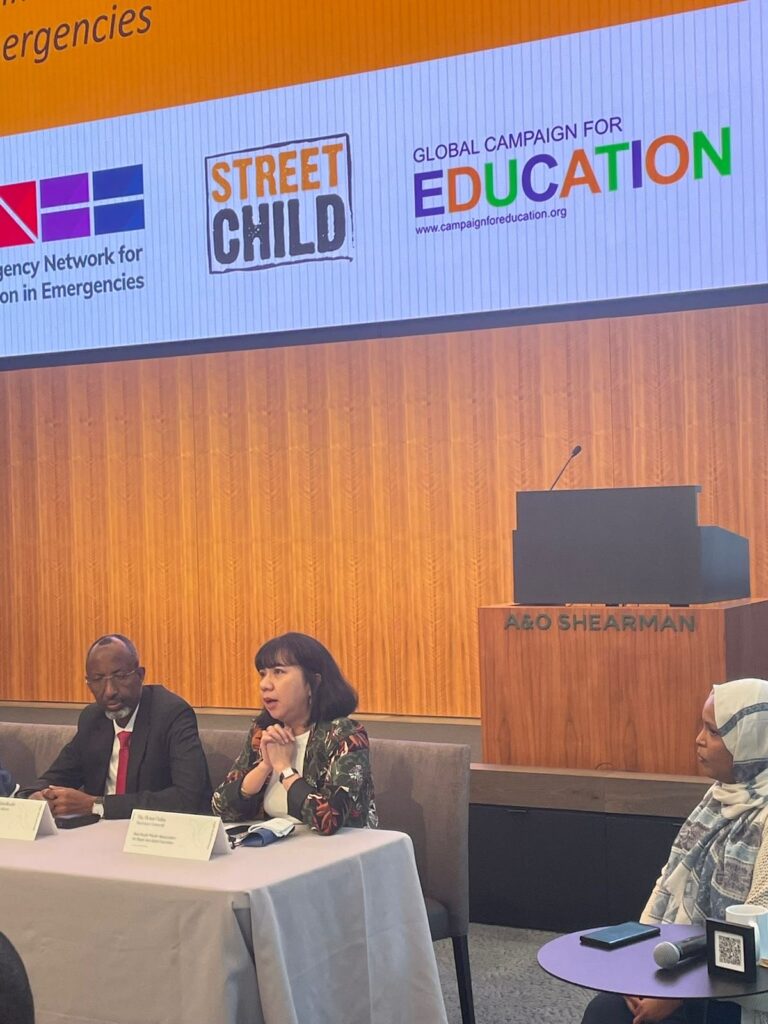
In terms of addressing the advocacy fragmentation and building a stronger, unified voice that reflects local realities but has global impact, she emphasised that within the international community, there is an urgent need to be clear and protective of the key principles that support and reinforce global solidarity within diverse networks – these are the long-held principles of human rights, justice and equality.
And amidst the threats of diminishing funding for and restrictions on civil society work, she also called for a collective response and strategic actions that are anchored on the fundamentals of social movements by:
- Continuing to amplify the voices of the people from the grassroots at all levels and in all areas of work;
- Putting justice and inclusion as the foundation in shaping the future of education and development. And given the current political environment, there is also an urgent need for a collective response in challenging the far-right discourse which is becoming a lived reality in many local and national contexts.
- Fostering inter-generational and cross-sectoral dialogues and partnerships.
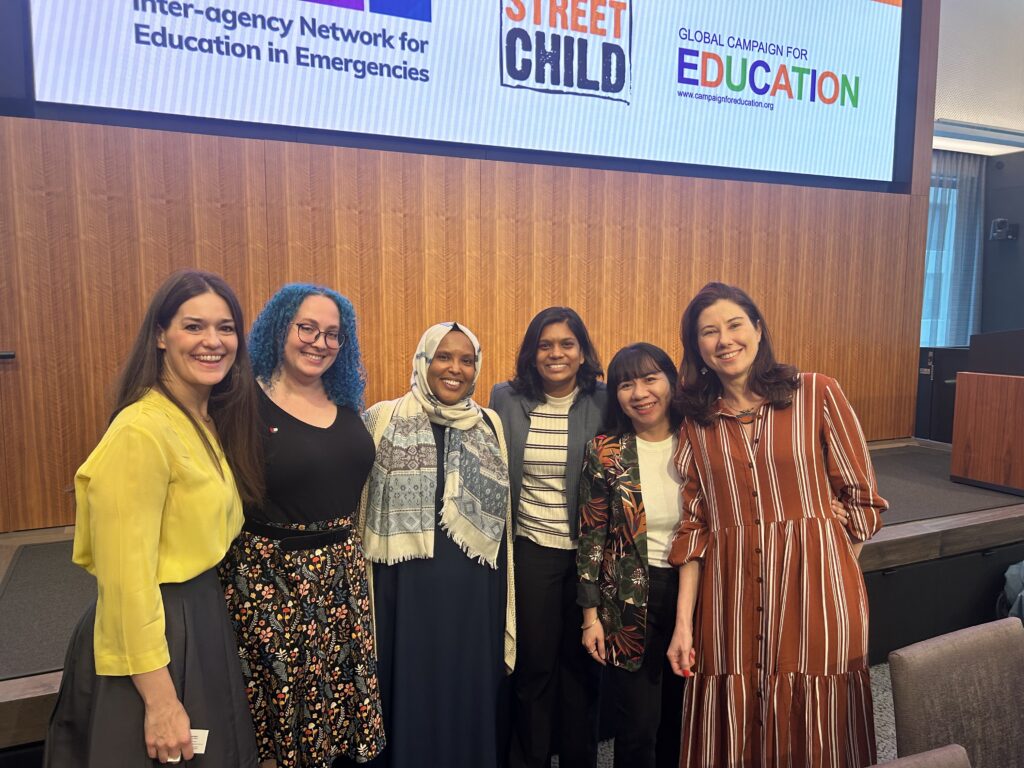
Other panel speakers included the following:
⦿ Mr. Farah Sheikh Abdulkadir, Minister of Education, Culture and Higher Education, Somalia Federal Republic
⦿ Mr. Kuyok Abol Kuyok, Minister of General Education and Instruction, Republic of South Sudan
⦿ Ms. Jo Bourne, Chief Technical Officer, Global Partnership for Education (GPE)
⦿ Ms Niranjali Amerasinghe, Executive Director, ActionAid USA
⦿ Mr. Emmanuel Kofi Abotsi, All-Africa Students Union (AASU), Global Student Forum
⦿ Ms Antonia Wulff, Director of Research, Policy and Advocacy, Education International
⦿ Mr Graham Lang, Deputy Director, Education Cannot Wait (ECW)
The discussion was co-facilitated by Ms. Faiza Hassan, Director of INEE, and Mr. Tyler Arnot, Director of Global Programs, Street Child. The GCE President, Mr. Refaat Sabbah, provided opening remarks via recorded video.
